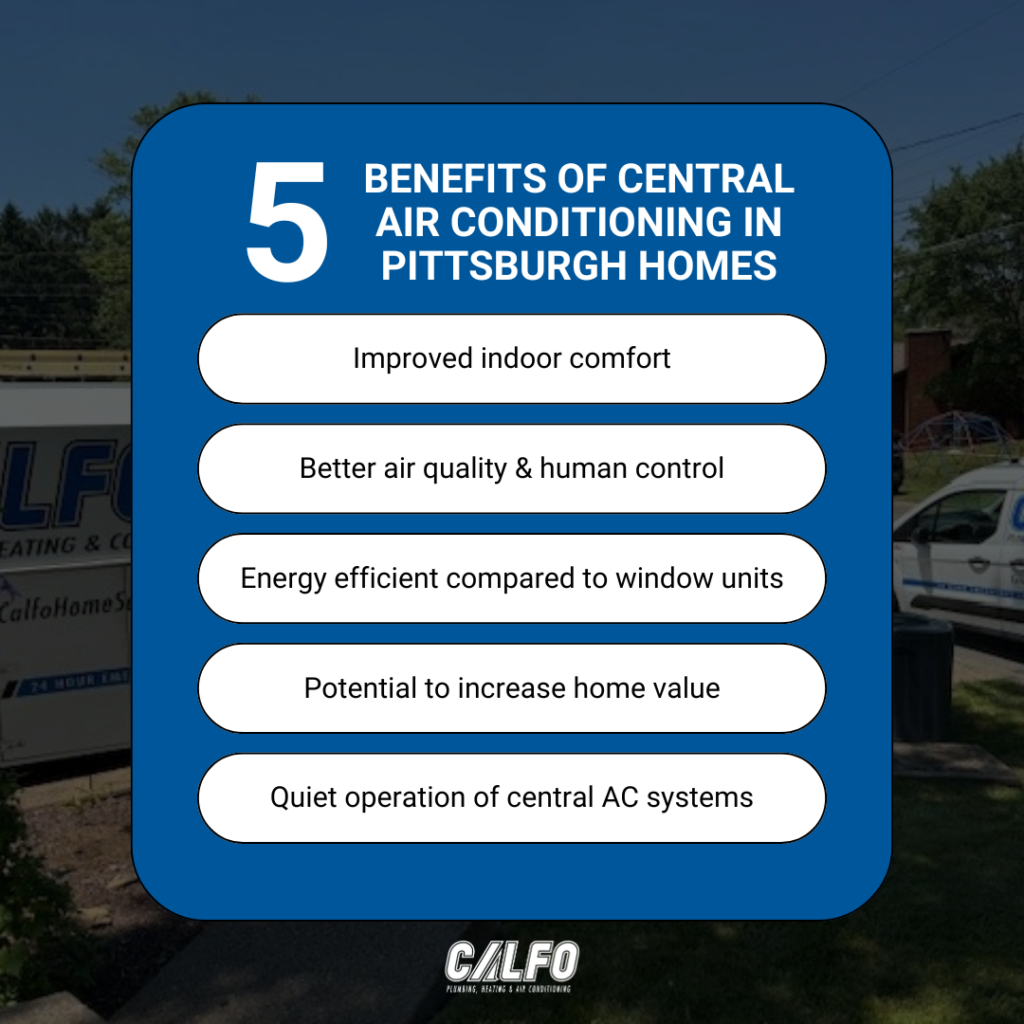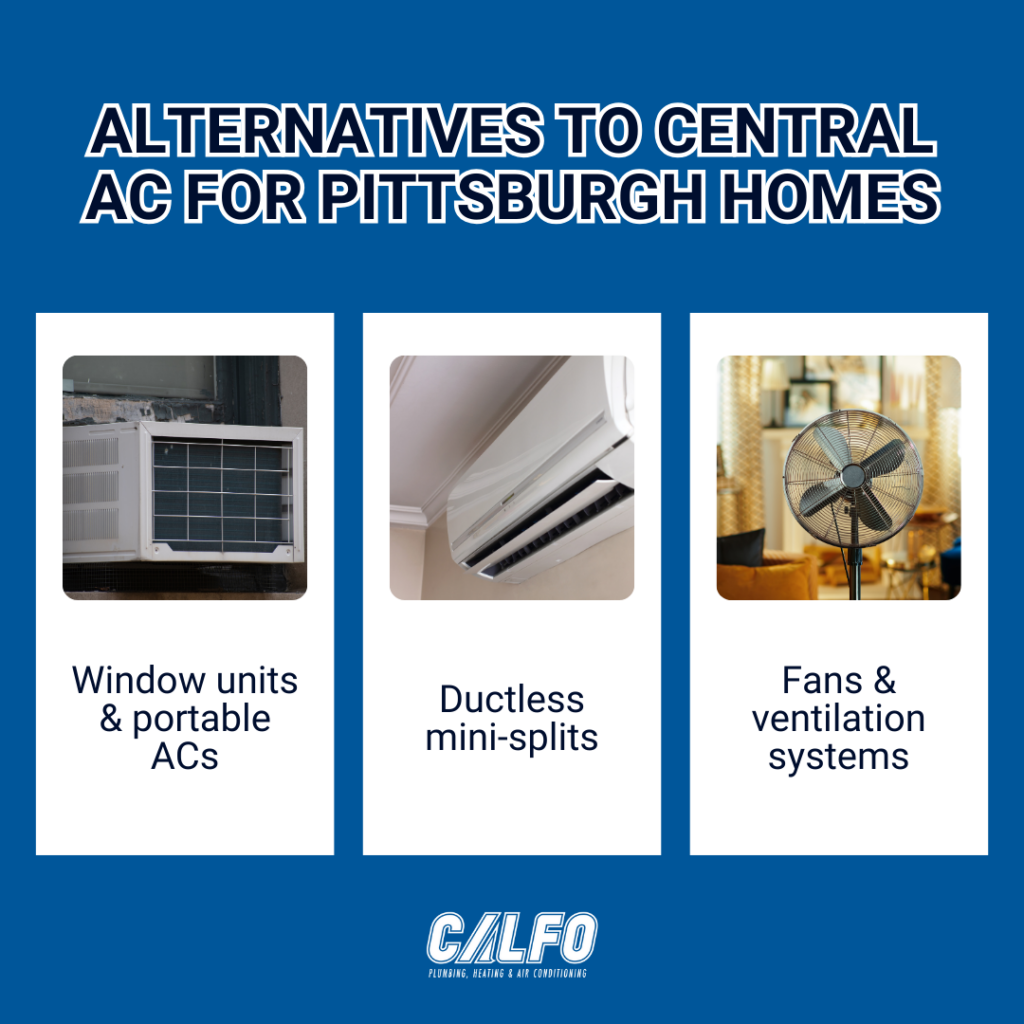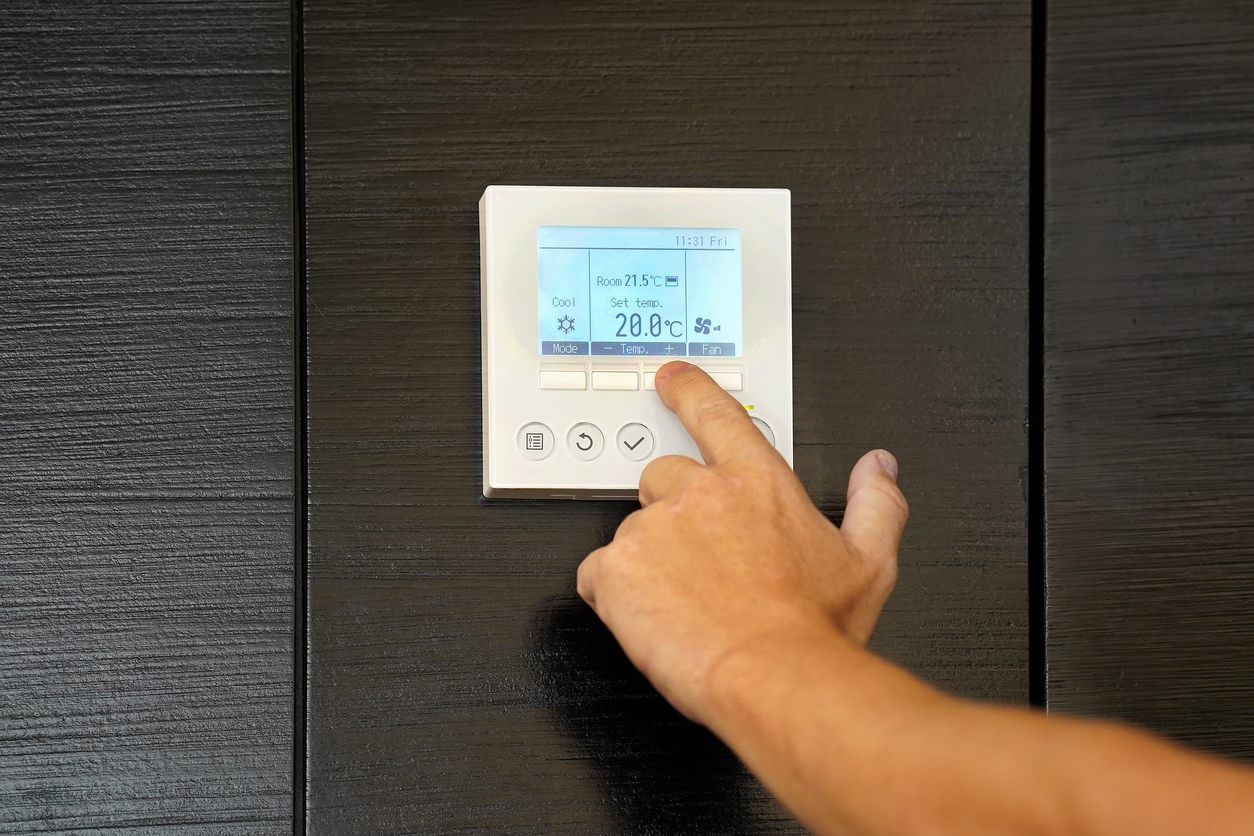Whether you need central AC in your Pittsburgh home depends on your specific cooling needs, budget, and home setup. If you’re tired of dealing with inefficient window units, struggling with humidity, or needing consistent cooling throughout your home, central AC is a worthwhile investment.
Summer Temperatures in Pittsburgh
Pittsburgh may not have a reputation for experiencing intensely scorching summer temperatures like many cities located in the Southern United States, but this region still encounters its fair share of warm and sticky days. From late May through early September each year, average high temperatures typically range from around 75°F to 85°F. However, there are occasional heatwaves that can cause temperatures to soar into the 90s. Such heat spikes can quickly convert even the most comfortable and inviting homes into spaces that feel unbearably hot without proper cooling solutions in place.
Humidity Levels in Pittsburgh and Their Impact
One of the most significant concerns during the summer months in Pittsburgh is not just the heat itself, but rather the high levels of humidity. Elevated humidity can make the air feel much warmer than the actual temperature indicates. This can lead to discomfort, feelings of stuffiness, and even potential health issues for individuals. A well-designed central air conditioning system does far more than simply cool the air; it also effectively reduces humidity levels inside your home. This helps create a more comfortable living environment, even when the outdoor air is particularly muggy and oppressive.
A central air conditioning system consists of several key components: an outdoor condenser unit, an indoor evaporator coil, ductwork, and a thermostat to control the system. The outdoor unit compresses refrigerant, sending it to the indoor coil, where it absorbs heat from your home’s air. The ductwork distributes the cool air throughout the home, ensuring each room stays comfortable.
A central air conditioner works by removing heat from the air inside your home and releasing it outside. Warm air from your house is pulled through return ducts, passed over the evaporator coil (where the refrigerant cools it), and then circulated back into your living space through supply ducts. This continuous process ensures a steady stream of cool, dehumidified air.

Improved Indoor Comfort
While window units or fans might provide some relief, nothing beats the consistent comfort that central air systems provide. Central air units ensure that every room in your house is cooled evenly, eliminating the hot spots that often occur with smaller, portable units. Plus, the ability to set your ideal temperature with a thermostat means you can stay comfortable no matter how hot it gets outside.
While central air conditioning systems are often associated with cooling and comfort, they also play a critical role in improving your home’s indoor air quality (IAQ). Pittsburgh’s humid summers can create the perfect environment for allergens, mold, and airborne particles that can compromise the air you breathe. Luckily, modern central AC systems, especially when equipped with additional features, can greatly enhance IAQ—making them a valuable investment for families concerned about health, allergies, or general air cleanliness.
For homeowners looking to maximize their AC system’s air-cleaning capabilities, upgrading to HEPA (High-Efficiency Particulate Air) filters is an excellent option. HEPA filters are designed to capture at least 99.97% of airborne particles that are 0.3 microns or larger, which includes most allergens, mold spores, and even bacteria. This is particularly beneficial for Pittsburgh homes with:
- Pets: Pet dander and hair can accumulate in the air, exacerbating allergies and creating an overall less clean environment.
- Family Members with Allergies: For individuals who suffer from seasonal allergies or asthma, a HEPA filter can significantly reduce their symptoms by filtering out pollen, dust mites, and other common allergens.
- Urban or High-Pollution Areas: Homes in busier parts of Pittsburgh may also see a reduction in outdoor pollutants entering the home, creating a cleaner and healthier indoor space.
Though window units may seem like a cost-effective option, they tend to use more energy and are less efficient than central air conditioning systems in the long run. A properly sized and maintained central AC system will cool your home more efficiently, saving you money on your utility costs over time. Central AC systems are also designed to be more eco-friendly, with higher SEER ratings (Seasonal Energy Efficiency Ratio) that reduce energy consumption.
Central air conditioning is a sought-after amenity for homebuyers, particularly in regions with hot and humid summers like Pittsburgh. While the city isn’t known for extreme heat, the combination of warm temperatures and high humidity during summer months makes homes with central AC more appealing. According to the National Association of Realtors, homes with central AC can see a value increase of up to 10% compared to homes without it. For Pittsburgh homeowners, this means that installing central AC can potentially add thousands of dollars to the resale value of your home.
One of the main benefits of central air conditioning systems is that they operate with minimal noise. Most of the louder components, such as the condenser and compressor, are housed in an outdoor unit, meaning the inside of your home stays serene. The indoor components, like the air handler and ducts, produce only a soft, consistent hum as air is circulated throughout your house. This makes central AC a great choice for homeowners who value peace and quiet, especially during the night or in rooms like bedrooms and home offices.
- Low Indoor Noise: Central AC systems are designed to be unobtrusive. The noise you might hear indoors is often so faint that it blends into the background, unlike window units that can produce a noticeable, constant whirring sound when running.
- Outdoor Unit Placement: Since the louder part of the system is located outside, homeowners can choose where to place the outdoor unit to further reduce any disturbance. For example, it can be placed away from windows or outdoor spaces like patios, so you won’t even hear it while relaxing outside.
If you’re constantly running fans, window units, or portable air conditioners and still feel uncomfortable, it might be time to consider central air. Other signs include uneven cooling in different rooms, excessive humidity indoors, or struggling to sleep at night due to the heat.
Central Air Conditioning is ideal for larger homes where window units and fans struggle to maintain consistent temperatures. Homes with multiple levels or a more open layout can especially benefit, as central AC ensures even cooling throughout every room. It’s also a great option if you have existing ductwork from a heating system, as installation is simpler and more cost-effective.
If your home already has a furnace or ductwork for a forced-air heating system, installing central AC will be much easier. Homes with older or inefficient cooling systems may also benefit from an upgrade to a central system, which can provide more reliable and energy-efficient cooling.

For smaller homes, apartments, or short-term cooling needs, window air conditioning unit or portable ACs can be a more budget-friendly solution. However, these options are less efficient, can be noisy, and often don’t provide enough cooling for larger spaces. They also tend to block windows and reduce natural light.
A ductless mini-split system is a great alternative for homes without existing ductwork. These systems consist of an outdoor unit connected to indoor air handler units placed in specific rooms or zones. While more expensive than window air conditioning unit, ductless systems are efficient and allow you to control the temperature of individual rooms.
While fans don’t cool the air, they can improve airflow and help make a space feel cooler by moving air over your skin. Ventilation systems, on the other hand, help expel warm air from your home and bring in cooler outdoor air. These systems work best in mild climates and are less effective during hot, humid Pittsburgh summers.
The cost to install central AC in a Pittsburgh home can vary depending on factors like the square footage of your home, the complexity of the installation, and whether ductwork needs to be added or repaired. On average, installation costs range between $3,000 and $7,000. However, many homeowners find that the comfort and efficiency provided by central AC are worth the investment.
Though central AC systems are more efficient than window units, they do increase your energy usage, especially during peak summer months. Regular maintenance, such as changing filters and scheduling annual tune-ups, can help keep your system running efficiently and reduce long-term repair costs.
In addition to the direct increase in home value, central AC systems with higher SEER (Seasonal Energy Efficiency Ratio) ratings can offer long-term savings on energy bills, making them an attractive option for cost-conscious buyers. Homes with energy-efficient cooling systems are becoming more appealing, as rising energy costs make utility savings a bigger consideration in home purchases. In Pittsburgh, where energy costs can fluctuate with seasonal demand, a high-efficiency central AC system can help reduce overall energy consumption and lower utility bills, further increasing your home’s appeal to potential buyers.
If you’re considering upgrading to a central air conditioning system in your Pittsburgh home, you may be eligible for various local and federal tax incentives, rebates, and energy-saving programs. These programs are designed to offset the upfront costs of installation and encourage homeowners to invest in energy-efficient HVAC systems.
The Energy Efficient Home Improvement Credit offers a tax credit for installing qualifying energy-efficient HVAC systems, including central air conditioners with high SEER ratings. Starting in 2023, homeowners can claim a credit of 30% of installation costs, up to $600 for central AC systems that meet the energy-efficiency criteria. This is part of the U.S. government’s initiative to promote energy-saving home upgrades through the Inflation Reduction Act.
In Pennsylvania, certain utility providers offer rebates to homeowners who upgrade to energy-efficient HVAC systems. For example, Duquesne Light and FirstEnergy provide rebates for energy-efficient air conditioners, which can range from $150 to $300 depending on the SEER rating of the system you choose.
Additionally, the Pennsylvania Department of Environmental Protection participates in the Energy Star® program, which offers rebates for the installation of Energy Star-rated central AC systems. The exact rebate amount can vary, but it’s worth checking with your local utility company for current offers.
Pittsburgh-area homeowners may also be eligible for local utility rebates from companies like Peoples Gas and Columbia Gas, which have programs to encourage energy-efficient home upgrades. These programs often cover central AC installations, particularly if paired with high-efficiency furnaces or heat pumps.
Additionally, the Keystone HELP® program offers low-interest loans to Pennsylvania homeowners for energy-efficient home improvements, including the installation of central AC systems.

